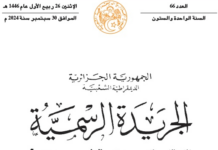The intersection of faith and profession presents a complex landscape for Muslims worldwide, particularly when it comes to industries that are at odds with Islamic principles. The iGaming industry, which encompasses online casinos, sports betting, and other forms of gambling, stands prominently within this contested zone. For Muslims, the question of whether they can work in iGaming is not just a matter of personal career choice but is deeply intertwined with ethical and religious considerations.
Islamic Perspective on Gambling
To understand the context, it’s crucial to first outline the Islamic stance on gambling. Islam categorically prohibits gambling, denoted by the term “maisir” in Arabic. This prohibition is grounded in the Qur’an, where gambling is mentioned alongside alcohol as an abomination and a handiwork of Satan (Qur’an 5:90-91). The rationale behind this prohibition is multifaceted, focusing on gambling’s potential to lead individuals away from societal responsibilities, encourage dependency on chance rather than effort, and foster an environment conducive to addiction and financial ruin.
The Nature of Work in iGaming
The iGaming industry is diverse, spanning from software development and operational roles to marketing, legal compliance, and customer support. The ethical dilemma for Muslims arises not merely from the industry’s association with gambling but from the direct contribution their work might make toward facilitating or promoting gambling activities. For a Muslim, any employment that directly contributes to the operation or promotion of gambling would conflict with Islamic teachings.
Ethical and Religious Considerations
From an ethical standpoint, working in iGaming can be problematic for Muslims due to the direct contradiction with Islamic principles. The critical question is whether the nature of one’s work directly supports or profits from activities considered haram (forbidden) in Islam. For roles that directly involve the facilitation of gambling, the conflict with Islamic values is clear. However, there are gray areas, such as IT support, where the connection to gambling is indirect. In these cases, individual judgment and consultation with knowledgeable religious leaders may be necessary.
Socio-Economic Implications
The decision about whether to work in iGaming also involves considering the socio-economic impact of gambling. Islam’s prohibition of gambling is partly based on its potential to cause harm, not just to the individual gambler but to families and society at large. Thus, contributing to an industry known for its negative socio-economic impacts can be seen as contributing to societal harm, which is antithetical to Islamic principles of promoting welfare and preventing harm.
Alternative Perspectives
Some might argue for a nuanced view, suggesting that if one’s work in iGaming is removed from directly facilitating gambling (for example, in a technical role that is several steps removed from the gambling process), it might be considered permissible. This perspective might also be supported by the necessity to earn a living or the intention to use one’s earnings for good causes. Nonetheless, such positions remain controversial and are not widely accepted among Islamic scholars.
The Principle of Avoiding Doubtful Matters
In Islam, there is a principle advising Muslims to avoid matters that are doubtful or might lead to haram activities. Prophet Muhammad (peace be upon him) is reported to have said, “Leave what makes you in doubt for what does not make you in doubt” (Tirmidhi). For many Muslims, this principle alone would discourage employment in the iGaming industry, given the inherent association with gambling.
Navigating the Dilemma
For Muslims navigating this dilemma, the decision involves a personal and spiritual assessment of how their work aligns with Islamic principles. It is advisable to seek guidance from knowledgeable and trustworthy Islamic scholars who can provide insights tailored to the individual’s specific circumstances. Moreover, exploring alternative career paths in industries that are not in conflict with Islamic values can offer fulfilling opportunities without compromising one’s faith.
Conclusion
Given the explicit prohibition of gambling in Islam, working in an industry centered around this activity presents clear challenges for Muslims striving to live in accordance with their faith. While there are gray areas and individual circumstances that might influence one’s decision, the overarching guidance of Islam points towards seeking employment in fields that do not conflict with Islamic principles. For Muslims faced with this decision, it is a matter of balancing professional aspirations with the desire to maintain integrity and faithfulness to their religious convictions.





